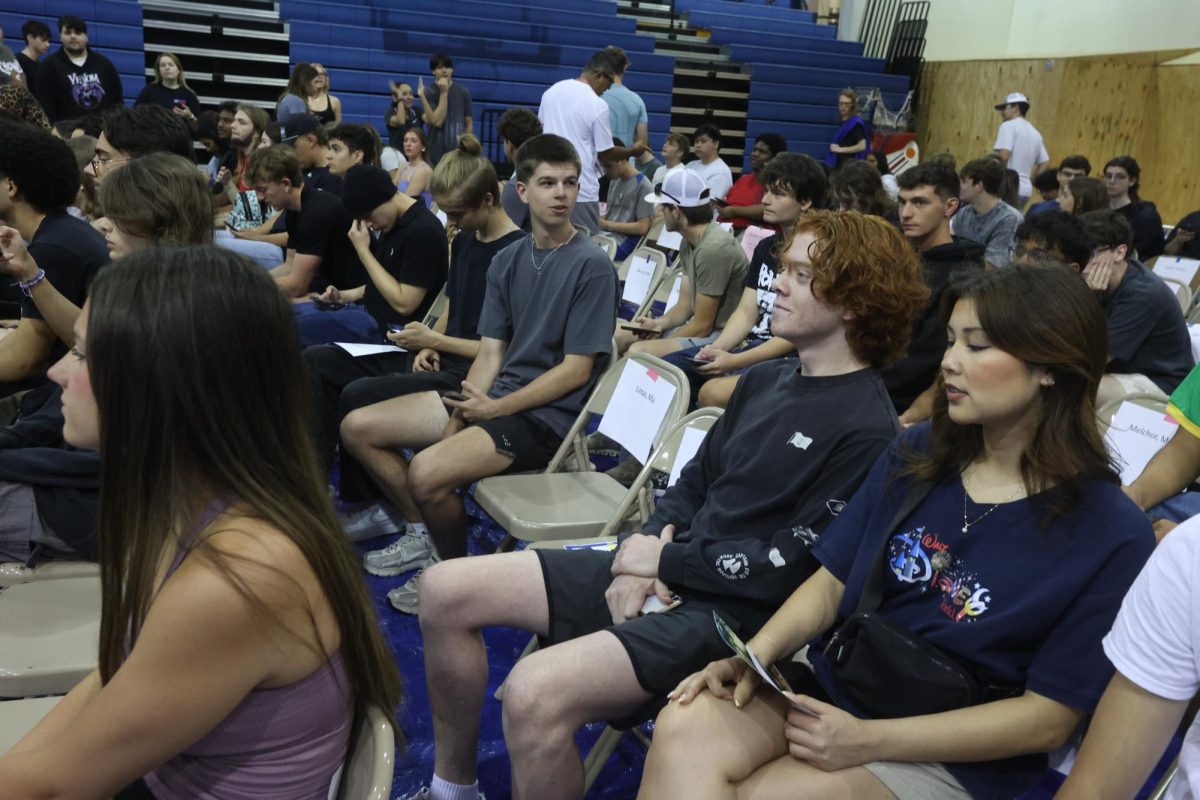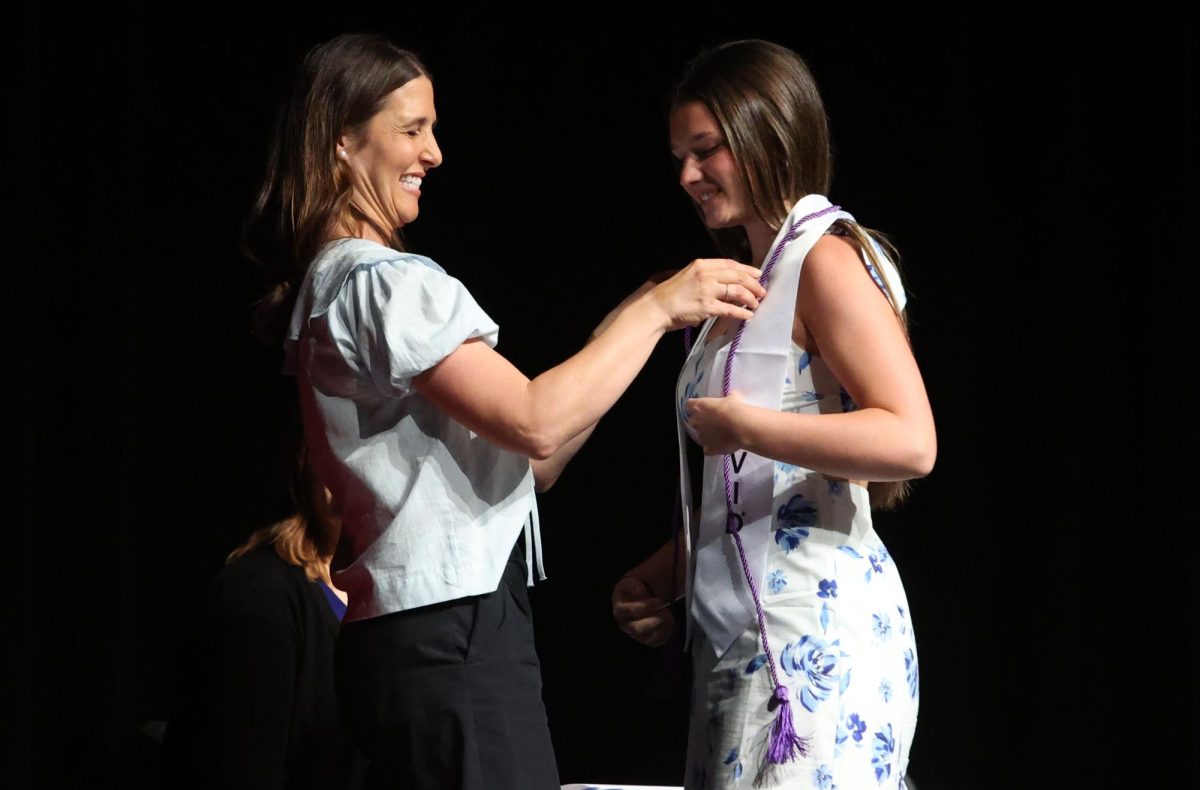A Beginners Guide to College Applications
Everything you need to know about the basics of college applications.
Student filling out college applications.
September 21, 2022
Saying college application season is stressful would be the understatement of the century. I mean, the idea that my entire future is riding on the back of the decisions my 17-year-old self is making is so fun and awesome! But alas, don’t worry fellow seniors, I’m here to tell you college apps don’t have to be so draining, and if you efficiently manage your time and go about it smartly, you won’t be collapsing from stress and exhaustion, like what I unfortunately had to go through.
Create your college list
The first thing to do is to look over your college list and make sure it’s balanced. And no, applying to all the Ivies and just A&M is not balanced. The ideal list should consist of around 2-4 safeties: schools that you know you can get into, 2-4 targets: schools that you should be able to get into with some hard work, and 2-4 reaches: schools where you don’t really meet the stats of other admitted students. I know it may seem like a waste of time to apply to reach schools, but in this day and age, college admissions have become so unpredictable that you can’t just go off whether or not you have the same GPA as students that have been accepted in the past. Nowadays, there’s a bigger emphasis on essays and extracurriculars, so academics aren’t the end all be all (however this isn’t the case for every school). As long as you have a couple of schools where you know you will get in, then yeah, apply to Harvard or something. Go crazy.
ED vs. EA vs. RD
After you have your finalized college list, the next thing you should do is decide what admission deadline you want for your schools. The three main deadlines are early action, early decision, and regular decision. Early decision (ED) is binding, so if admitted, you have to attend. Since you can only apply ED to one school, I recommend applying ED to your dream school, given that they have that admissions path. ED can show colleges that you’re interested in their college, and may occasionally give you a boost in admission. However, this isn’t the case for all schools, especially schools that are very competitive. One important thing to note about this deadline is that some schools may give you a smaller amount of financial aid if you are an ED applicant. If you require a substantial amount of financial aid and want to compare financial aid packages from various schools, then I wouldn’t recommend applying ED to any schools. But early action (EA) has an earlier deadline, and can sometimes show college interest. A bonus of EA is that you can apply to as many colleges via this admissions deadline. The final deadline is regular decision (RD). RD isn’t binding and most schools’ RD deadlines are in late December and early January, meaning you have a little extra time to work on your application.
Extracurricular activities
As I mentioned earlier, extracurriculars can play a very significant role in admissions. While grades are definitely important, they only put you on an equal playing field with other applicants. It’s your extracurriculars and essays that really make you stand out. But it’s important to note that extracurriculars usually can’t make up for “mediocre” grades. I also recommend having a “spike” in your extracurriculars. A spike is when a majority of your extracurriculars fall under one category of something you like. For example, if I was in DECA, had my own business, and participated in other business-related extracurriculars, I would have a spike in business, which would be very helpful if that’s what I wanted to major in. Another thing to note is when you start clubs. I do not recommend starting a club or anything of that sort at the beginning of your senior year. College admission officers often see this as students trying to cram in more extracurriculars before submitting applications, which can negatively impact your application. Unless you’re starting a club that you’re genuinely passionate about, then maybe you should try to do something else.
Don’t listen to the internet
I really wish I had someone tell me this my junior year because the number of hours I spent on Reddit and College Confidential comparing myself to other college applicants is honestly concerning. You’re going to encounter hundreds of thousands of applicants that seem like they’re better than you, and you’re going to need to learn how to just ignore them. Comparing yourself to other people does more harm than good. You need to realize that everyone has their own story, so it’s stupid to think that you’re not doing enough just because of what other people have done.
College doesn’t define you
After reading everything in this article, I hope that one thing you get from this article is the realization that college isn’t everything. I know it’s ironic to hear that from me because I felt like I’ve built my entire existence around the fact that I hopefully get into a school, but it really is the truth. After you graduate, you’ll be like literally everyone else that has a bachelor’s degree. You should want to go to a college because of the experience and the learning, not because of some silly, arbitrary numbers put out by US NEWS (I have a deep profound hatred for US NEWS and its corruption. Niche and Unigo are eons better). The school you decide to go to doesn’t define you and isn’t a definite measurement of intelligence, because when you think about the only smart people are the ones going to ACC instead of going into hundreds of thousands of dollars in college debt.








